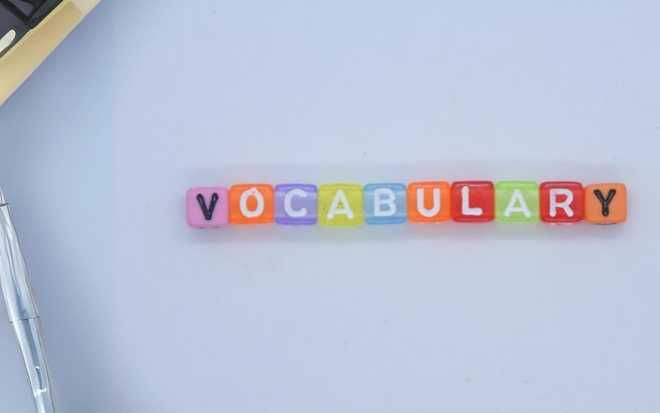Vocabulary
Expand your child's vocabulary!

Home > Resources & Worksheets > Vocabulary
An expansive vocabulary will take your child’s communication skills to the next level!
Limited vocabulary can prevent a child from communicating effectively, which can severely affect their development. Learning vocabulary improves your child’s ability to understand and process information, their descriptive skills, and their self-expression.
This guide will make learning vocabulary fantastically fun for your child! We’ve included lots of tips, activities, and worksheets to teach your child new vocabulary and to encourage them to practice using these new words in their writing.
What is vocabulary?
The Cambridge English Dictionary defines vocabulary as "all the words that exist in a particular language or subject". Vocabulary forms the basis of all languages, and language does not function without it.
When learning a foreign language, like Spanish, German or French, vocabulary is introduced before anything else. The more vocabulary your child can gather, the more things they can say, the more they can express themselves.

How to build vocabulary
Here are our top tips to help your child build their vocabulary:
- Encourage your child to look up word definitions and synonyms for basic words that may elevate their writing.
- The more a child reads, the better their vocabulary will become. Ask your child to make note of all the new words they learn every time they read in order to expand their vocabulary.
- Access online word lists or create your own.
- Put new vocabulary in context using example sentences.
Vocabulary might vary within a language due to regional differences. For example, an English language learner (much like your child) may be confused to learn that American English and British English have different spellings for the same words. For this reason, you may need to present them with different versions of the same word and explain that they have identical meanings and inferences.
How Night Zookeeper can help

Night Zookeeper makes reading & writing fantastically fun for children aged six to twelve!
Our reading & writing program for kids uses a gamified approach to teaching English language, keeping children engaged and entertained as they learn! Our content includes vocabulary quizzes, word games, vocab challenges and interactive lessons.
Sign up today to get a FREE 7-day trial!
Related articles


Make Reading & Writing Fantastically Fun!
- Award-winning reading & writing program for kids
- Improves spelling, grammar, punctuation & vocabulary
- Over 1,000 different learning games and activities



